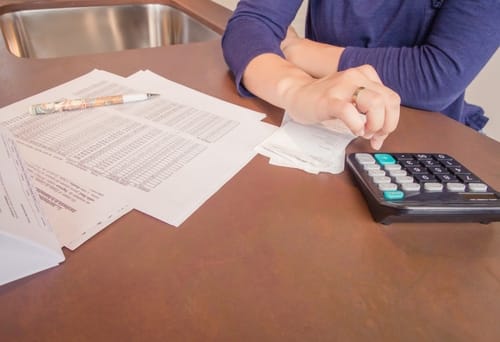Businesses can be a tricky and complicated area when it comes to getting a divorce and agreeing a financial settlement. Regularly, we are approached by clients who ask how they can “get their hands on” their spouse’s business assets. Conversely, there are those concerned that their partner is seeking to make a claim on their business and “ruin them” and want to make sure they cannot do this.
The courts do not like to place a business owner in the position where a divorce may ruin their business, for instance if an order is made for a lump sum to be paid to the spouse as part of a settlement and the only way to make that payment is to sell off part or all of the business. This would be in no one’s long term interest. There are several ways that the courts prefer to deal with matters. Certainly, a sale of a shareholding in a business or of a business in its entirety must be avoided unless that is the intention of the business owner.
Instead the parties can work together to seek to reach an agreement to offset against other assets for example, any equity that is within the matrimonial home, any savings or ISAs the parties may have or indeed any pension provision again that the parties may have.
How is a business treated in divorce?
Often a spouse assumes that their partner’s business is worth a small fortune and they do not want to lose out on that potential asset in terms of both the capital value and the potential income that is derived from it in a divorce financial settlement.
Equally the business owner does not want to find themselves in the situation where they must consider selling their shareholding or secure substantial funds against the business. This will either remove their income stream or hamper the business in the future, limiting its ability to trade and potentially limiting its expansion or ability to borrow.
A spouse who “goes after the business” can sometimes be taking an unrealistic, not to mention short-sighted, approach. A business inherently will have a value but very often that business is a vehicle to provide an income for the family. Obviously if the business is taken away then the income will be lost and in turn any potential for future maintenance payments for the spouse will be affected. Equally, if the business is burdened with excessive borrowings, this will hamper its performance in the future and again have a knock-on, negative effect in terms of any maintenance payments made.
Valuing a business on divorce
The most effective way of viewing a business is to see it as a positive for both parties and to agree a valuation of the shareholding, considering all the realities of the situation. This may include, for example, that the partner has a minority shareholding only. If that is the case, it must be accepted that it is going to have an impact on the valuation.
It is important to seek to agree at the earliest opportunity both the income derived from the partner’s business over the last two years or so and to take a realistic view about future income. There is nothing more difficult than dealing with a case where a company has had either an exceptionally good or bad year and seeking to agree matters on that basis. A more long-term view must be taken.
Once the parties have agreed realistic figures for the value of the shareholding and income, progress can be made in terms of any capital payments that may be made regarding the value of a shareholding and any maintenance payments based upon need but taking into account affordability in terms of the payer.
What must be avoided are elements of double accounting. This is where a spouse will seek to claim against a partner’s share of the value of the business, often valued by an independent accountant. Then they also try to claim against their partner’s income, when the income is derived from the value of their shareholding in the business.
The courts may be involved in agreeing the calculation for the worth of a business involved in a divorce and how that should be reflected in a settlement rather than should it be considered. Therefore, it is essential that a specialist family lawyer be involved in the process at an early stage. They can advise on the best course of action after looking at whether the worth of a business is going to be assessed on a dividend basis, an asset basis or something else.
Such assessments are affected by things like whether the business is a limited company or a partnership. If a person is a sole trader, the business as an asset would again be considered in a different way. In many cases, trying to value the business separately from the person running it would be almost impossible.
How to use the business value in a settlement
Once a suitable route is decided on, how to raise the settlement will then be the next issue to tackle and varies from case to case. This could cover things like the liquidity of a company, the amount owed, shares owned in the company by the two parties and any salaries paid. Sale of part or all the company may be the only way to raise the capital needed to meet a settlement, if all other avenues have been exhausted.
Generally, the starting point for any settlement now is a 50/50 split of a couple’s assets, but it is simplistic to suggest a spouse gets half of everything. The court will take a lot of factors into account, such as the length of the marriage, the needs of any children and future income.
Of course, it is not just the financial issues which need to be considered when a business is part of a marriage break-up. There is the inevitable emotional turmoil a person will be going through which could lead to a drop in productivity.
Added complications
In some instances, a spouse will have a direct role in the company. A divorce could see them leaving their position, which impacts on the day-to-day operations. Alternatively, the spouse could occupy a less active role. In years gone by it was very common for a spouse to be listed as the company secretary, a role on paper only. But as this is an official role it can make things more complicated, requiring an agreement from the company secretary and other directors to remove them and Companies House will need to be informed to avoid any future claims or liabilities relating to the firm.
In essence what must be remembered is that parties need to work together and take a realistic view of the value of the business from both a capital perspective and also the ability of the business owner to generate an income in the future. This is the secret to both parties leaving with a successful financial settlement.
Prevent putting your business at risk
From the outset of a relationship, family business owners are advised to have a prenuptial agreement drawn up. The process of preparing the agreement can iron out confusion over who’s entitled to what in relation to the business. Provided it is prepared correctly by a specialist family lawyer, this can significantly help in the event of a divorce as the courts would take it into account when passing any judgement.
Richard England
Family law solicitor


